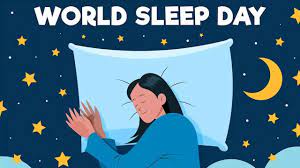
Is it better to sleep alone or share bed on World Sleep Day?

In contemporary times, insomnia has grown more common than unusual due to various causes that overstimulate the mind and hinder the ability to fall and stay asleep, such as stress and prolonged screen time. Insomnia instances have skyrocketed during and even after the Covid pandemic, with an increasing number of people unable to obtain the recommended 8 hours of sleep each night. When it comes to getting a good night's sleep, doctors advise practicing excellent sleep hygiene, which is establishing healthy routines around bedtime.
Your mental health can be significantly impacted by the way you sleep. While a disturbed and restless sleep can have the opposite effect and increase the risk of conditions like diabetes and high blood pressure, a deep, restful sleep can help you avoid becoming overwhelmed by anxiety, stress, and sadness. While some studies have found that sleeping alone is healthier because it might promote undisturbed rest, others have connected sharing a bed with your mate to improved mental health.
Adults who share a bed with a spouse or partner sleep better than those who sleep alone, according to a university of Arizona study published in the American Academy of Sleep Medicine. The study found that compared to people who never shared a bed, those who shared one experienced less acute insomnia, less exhaustion, and more time asleep. This study shows that sleeping with your partner can have a positive impact on your mental health. It found that couples who co-sleep reported reduced levels of stress, anxiety, and depression as well as greater life and relationship satisfaction. They also fell asleep more quickly, stayed asleep longer, and had a lower risk of developing sleep apnea.




 click and follow Indiaherald WhatsApp channel
click and follow Indiaherald WhatsApp channel